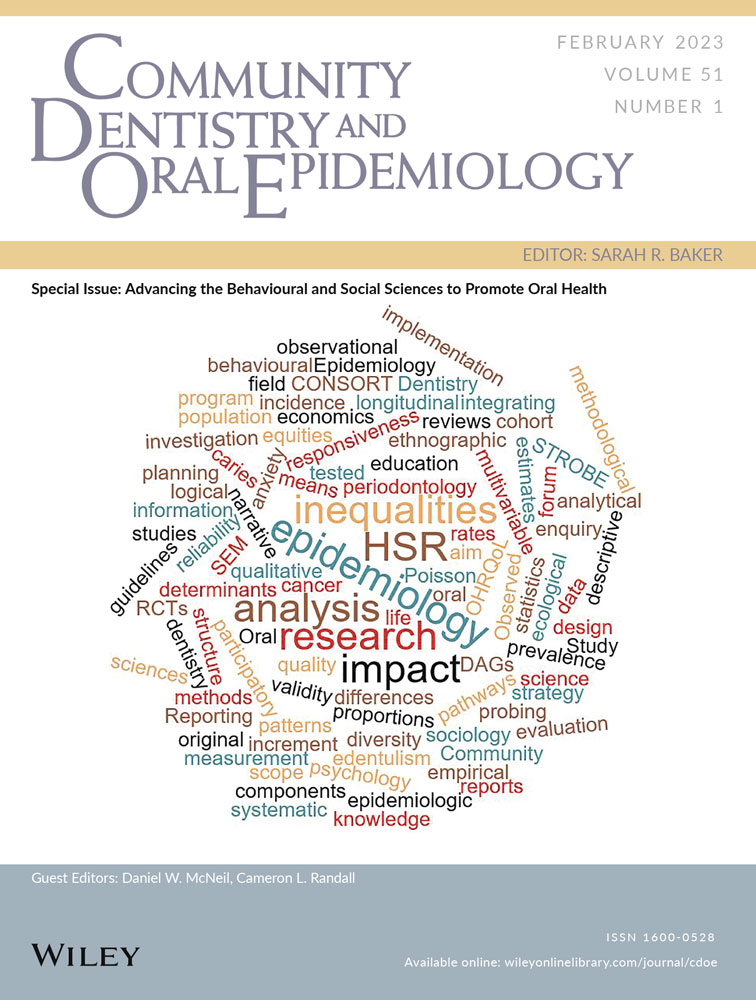De-implementing opioid prescribing in a dental group practice: Lessons learned
Abstract
Background
Drug overdose has become a leading cause of accidental death in the United States. Between 2000 and 2015, the rate of deaths from drug overdoses increased 137%, including a 200% increase in the rate of overdose deaths involving opioids (including opioid pain relievers and heroin). Unnecessary opioid prescribing is one of the factors driving this epidemic.
Objectives
The primary objective of this paper is to share lessons learned while conducting a randomized trial to de-implement opioids for post-extraction pain management utilizing clinical decision support (CDS) with and without patient education. The lessons learned from conducting this trial in a real-world setting can be applied to future dissemination and implementation oral health research.
Methods
The sources informing lessons learned were generated from qualitative interviews conducted with 20 of the forty-nine dental providers involved in the study following the implementation phase of the trial. Ongoing policy, social and environmental factors were tracked throughout the study.
Results
Dental providers in the trial identified the impact of training that involved health professionals sharing information about the personal impact of pain and opioid use. Additionally, they found utility in being presented with a dashboard detailing their prescribing patterns related to other dentists. For the 30 general dentists with access to the CDS, use of its portal varied widely, with most using it 10%–49% of the time related to extractions.
Conclusions
In the context of a downward trend in opioid prescribing and considering the influence of the COVID pandemic during the trial, dental providers indicated benefit in training about negative personal impacts of prescribing opioids, and personally relevant feedback about their prescribing patterns. Only modest use of the CDS was realized. Implementation of this trial was impacted by governmental and health system policies and the COVID pandemic, prompt the consideration of implications regarding continuing ways to limit opioid prescribing among dental providers.
CONFLICT OF INTEREST
Unrelated to the present study, Dr. Gryczynski has received research funding from Indivior (paid to his institution and including project-related salary support), has received in kind study medication from Indivior and Alkermes for NIH-funded research, and is part of owner of COG Analytics. Dr. Mitchell is MPI of an unrelated NIDA-funded study that is receiving medication in-kind from Braeburn. The other authors have no conflicts of interests to report.
Open Research
DATA AVAILABILITY STATEMENT
The data that support the findings of this study are available from the corresponding author upon reasonable request.




